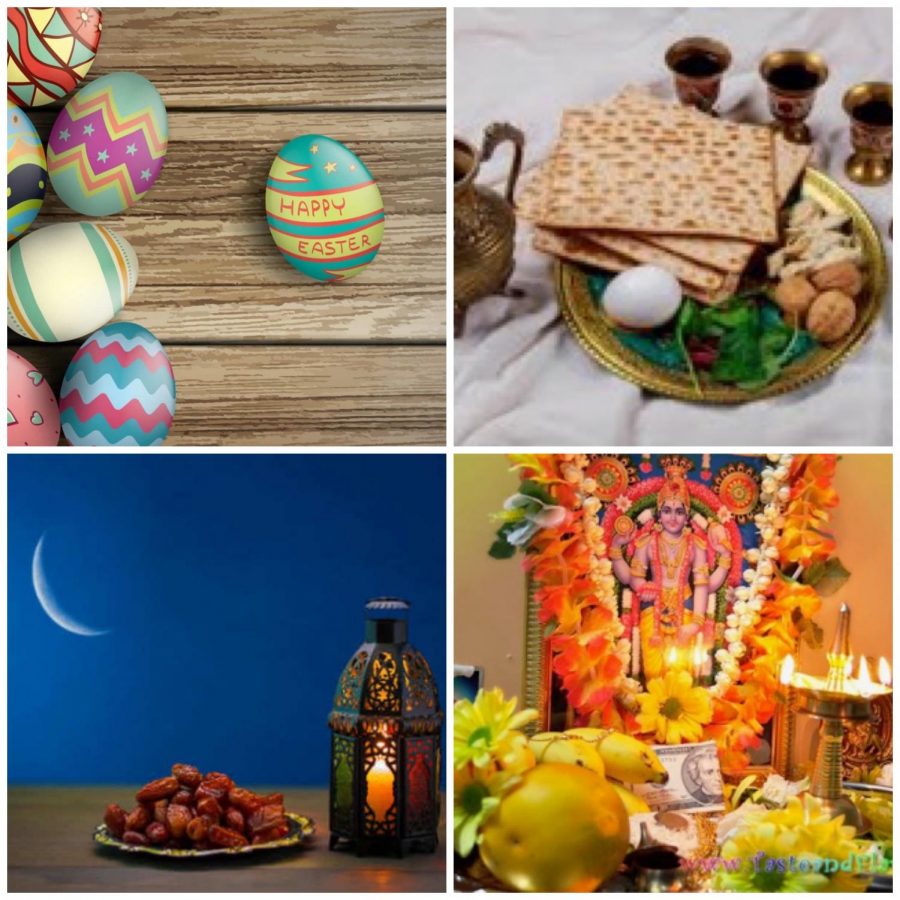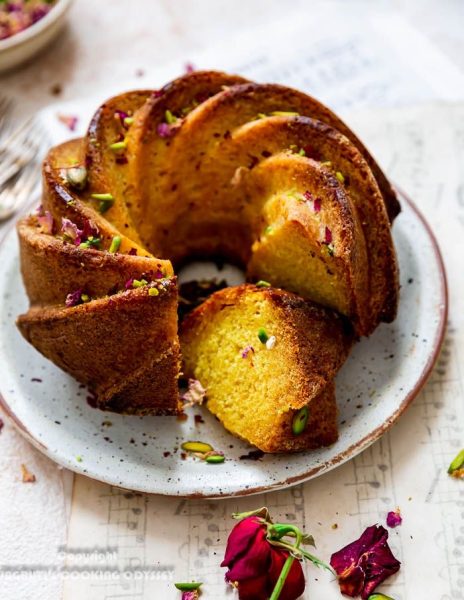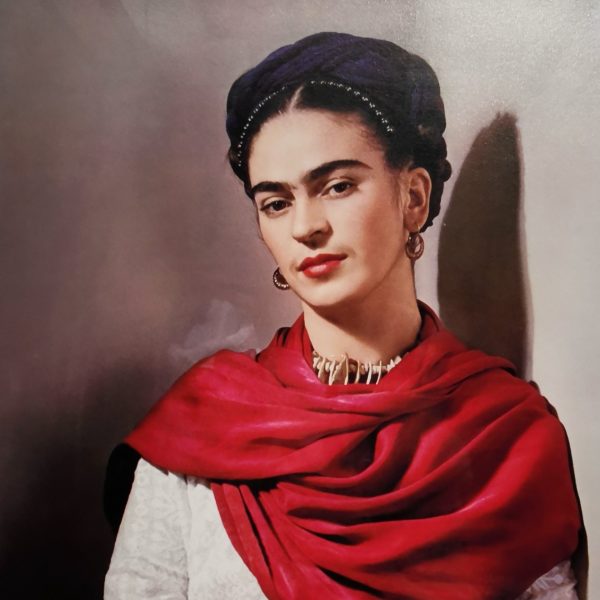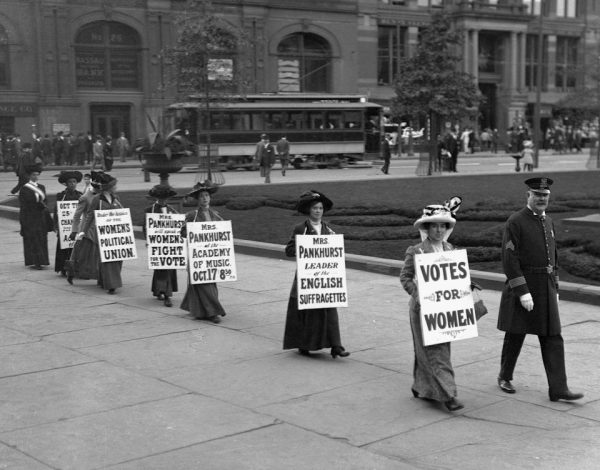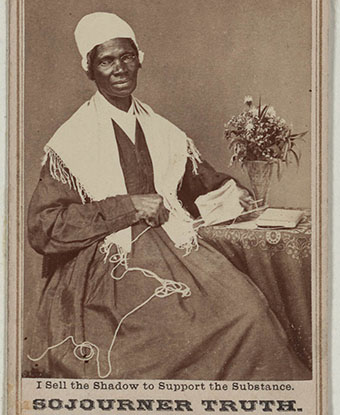Holidays of April: Easter, Passover, Ramadan, and Vishu Baisakhi
Four of the main holidays celebrated in April are Easter, Passover, Ramadan, and Vishu Baisakhi. These celebrations are for the belief in the resurrection of Jesus Christ, commemorating the liberation of the Children of Israel who were led out of Egypt by Moses, timing of spiritual reflection, self-improvement, and heightened devotion, and worshiping the God of Time. With that, let’s dive deeper into the history of why these four important holidays are celebrated.
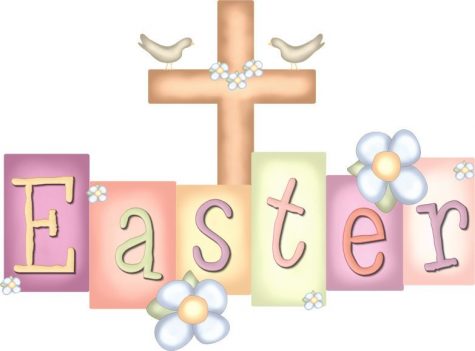 Christianity: Easter
Christianity: Easter
Easter Sunday is one of the most festive events among Christians worldwide. Many Christians worldwide celebrate Easter with special church services, music, candlelight, flowers and the ringing of church bells. It commemorates Jesus Christ’s resurrection from death, as written in the Christian bible. Easter falls on a Sunday, which is a non-working day in countries such as Australia, Canada, the United Kingdom and the United States. The date of celebration changes from year to year; the reason for this variation is that it always falls on the first Sunday after the first full moon following the spring equinox. However, it is different for Eastern Orthodox Christianity and in some denominations of Protestant Christianity. The roots of the Easter holiday’s traditions and activities can be traced back to pagan celebrations. The name Easter is believed to come from Eostara, the goddess of rebirth.
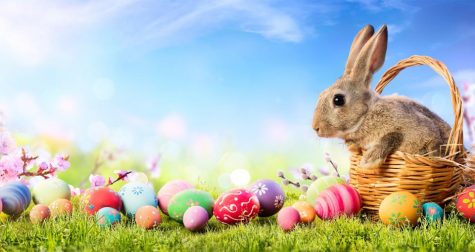
There are many traditions with roots that can be traced to non-Christian or non-religious celebrations. One of them being Easter eggs, and related games such as egg rolling and egg decorating. It’s believed that eggs represented fertility and birth in certain pagan traditions that pre-date Christianity, as said before. Parents usually hide the egg for the children to find and get a prize. In some households, a character known as the Easter Bunny delivers candy and chocolate eggs to children on Easter Sunday morning. These candies often arrive in an Easter basket.
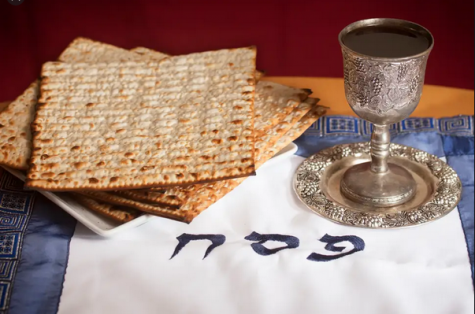
Judaism: Passover
The Jewish holiday of Passover (in Hebrew, Pesach) commemorates the exodus of the Jews from slavery in Egypt. The holiday is ultimately a celebration of freedom, and the story of the exodus from Egypt is a powerful metaphor that is appreciated not only by Jews, but by people of other faiths as well. This year, Passover is celebrated from April 8 – April 16. The first Seder was on April 8 after nightfall, and the second Seder was April 9 after nightfall. The Passover story is from the Biblical book of Exodus, it’s the central story of the Torah and reflects some of the biggest themes in Jewish history.
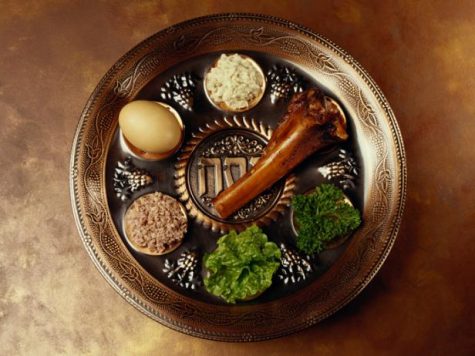
Passover is often celebrated with great pomp and ceremony, especially on the first night, when a special family meal called the Seder is held. Passover foods are unique in that, beyond the usual rules of keeping kosher, there are special rules for preparing food that is kosher for Passover. Symbolic foods eaten at the Seder are: maror (bitter herbs, usually horseradish, a reminder of the bitterness of slavery), salt water (symbolizing the tears of the slaves), charoset (sweet paste made of fruit and nuts, symbolizing the mortar the slaves used to build the Egyptian pyramids), zeroah (shank bone, representing the Passover sacrifice), beitzah (hard-boiled egg, symbolic of life and birth associated with the spring season), and karpas (a leafy green vegetable, usually a piece of lettuce, symbolizing hope and redemption). It is required to drink four cups of wine throughout the Seder.
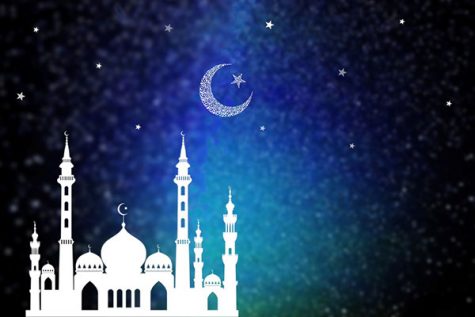
Islam: Ramadan
Ramadan is a holy month of fasting, introspection and prayer for Muslims, the followers of Islam. This religious holiday was established in the 7th century when the Quran was revealed to the Prophet Muhammad. His revelation began in 610 CE in Mecca at Hira Cave on Mount Nur. During this religious month, Muslims are expected to fast every day beginning at dawn and ending at sunset. During this time, they are supposed to refrain from eating or drinking, smoking, sexual activity, avoid having impure thoughts, using unclean words, and impractical behavior.
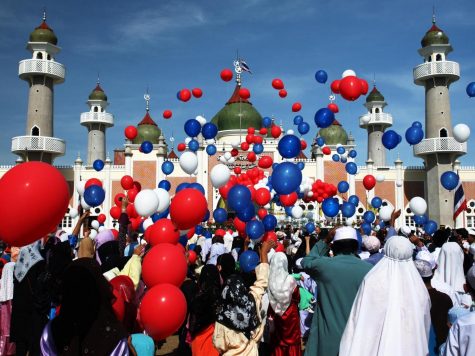
Fasting during Ramadan has a dual purpose. It is not only seen as a way for Muslims to cleanse their souls of impure elements but is also done to empathize with those in the word who may be poor and hungry.
Ramadan is usually concluded with a large celebration. This celebration, known as the Feast of Fast Breaking or Eid al-Fitr, starts the day following the end of Ramadan and usually lasts for three days. During these three days, Muslims say special prayers, gifts are exchanged and meals are shared with friends and family. The day is incomplete without the preparation of a variety of dishes including Biryani, Haleem, kebabs and a sweet dish like Seviyan.
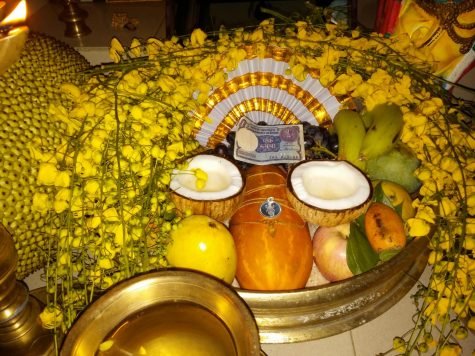
Hinduism: Vishu Baisakhi
Vishu is a Hindu festival celebrated in the Indian state of Kerala, as it marks the beginning of the new year. Lord Vishnu’s Krishna avatar is specifically worshiped on this day, as it is believed that Lord Krishna killed the demon. Every year, the festivals fall on April 13 or April 14, based on the Hindu or Sikh Calendar. People wish their friends and families on this occasion, with delicacies prepared, and new clothes are worn. On the dawn of Vishu day, it is a custom to wake up very early and go to the puja room with the eyes closed so that the first thing a person sees is the glorious view of God with Vishukkani, reflected on the mirror.
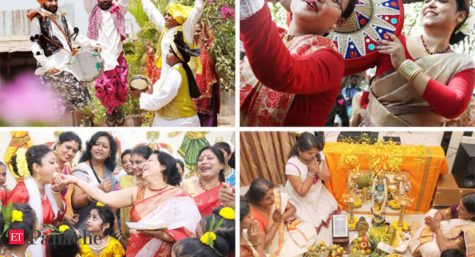
The Economic Times
This ritual is called ‘Kanikanal’. The Sadhya (feast) is a major part of all Kerala festivals. The mixing of sweet, salty, sour, and bitter flavors, eaten on a leaf make it one of the best meals to ever have.
However, this is only one glimpse of India’s culture, as there are multiple parts of India that celebrate the auspicious day. The Eastern, Northern & Southern parts of the country celebrate their first harvest festival of the year – Baisakhi, Bihu, Vishu, Poila Boishak & Puthandu. Baisakhi- Harvest Festival Of Punjab, Bihu- Harvest Festival Of Assam, Puthandu- Tamil New Year, Poila Boishakh- Bengali New Year.
Knights, I hope this gave a little insight and realization that there is so much culture and is always celebrated around the world. I wish you guys the best with online learning and hope to see everyone soon!
Sources used: https://www.history.com/topics/holidays/history-of-easter
https://theconversation.com/why-easter-is-called-easter-and-other-little-known-facts-about-the-holiday-75025
https://www.timeanddate.com/holidays/common/easter-sunday
https://www.vox.com/2014/8/5/18001980/what-is-the-passover-story
https://www.britannica.com/topic/seder-Passover-meal
https://www.history.com/topics/holidays/ramadan#section_5
https://en.wikipedia.org/wiki/Vishu
